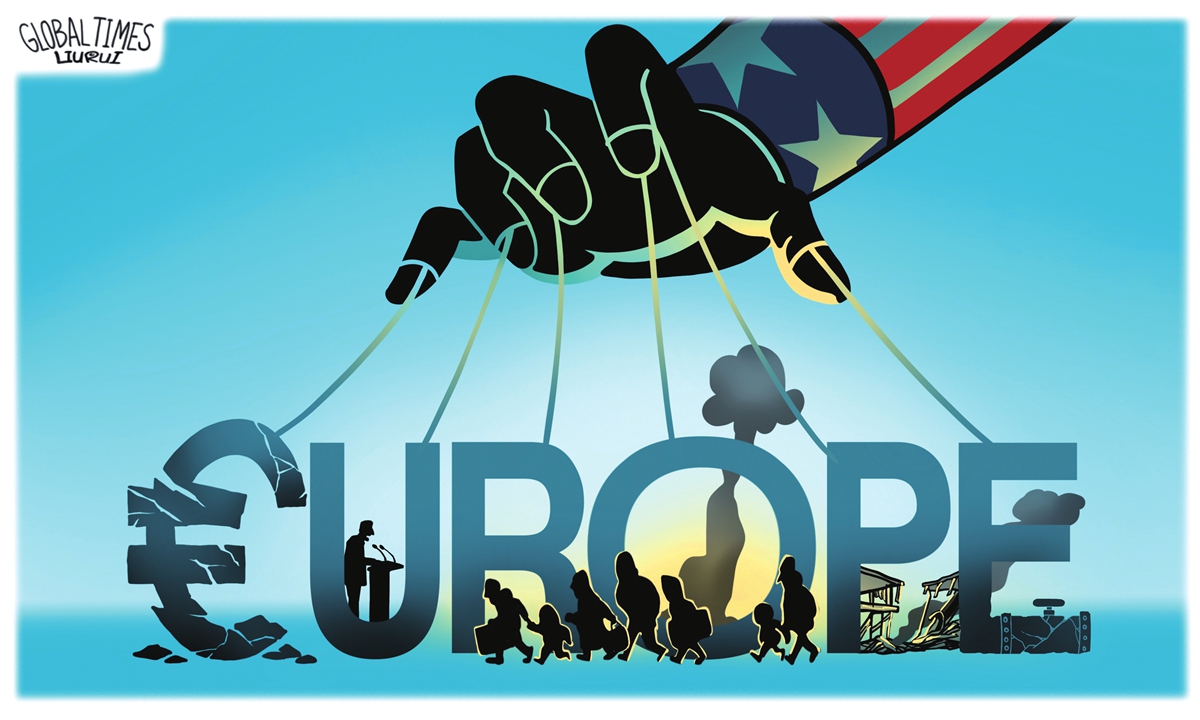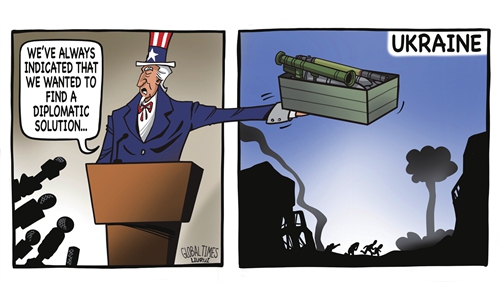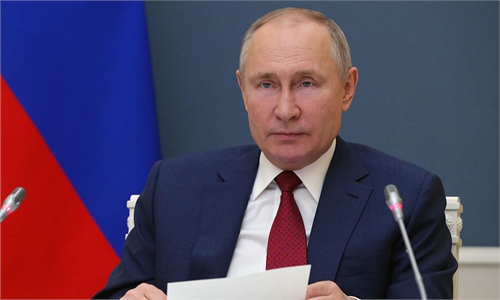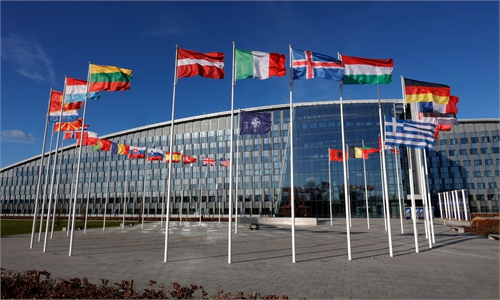US works with Nazis to exploit Europe both in WWII and at present, now targets Ukraine

US' game of manipulation Illustration: Liu Rui/GT
In Russia, World War II is the best-studied period of history. Schools and universities emphasize the Stalingrad battle of 1942 and the 1944 Allies' Normandy landing. When I attended school 20 years ago, Russia was influenced by Western culture, which is why textbooks focused on the Western front and very little was mentioned about the Chinese theatre of World War II.
Only when I was much older, I was able to learn about the War of Resistance against Japan. I remember my shock when I learned about the Nanjing Massacre and other tremendous atrocities committed in China by the occupants.
Since WWII, a lot of changes happened, but the villains and their tactics remained the same. In 1937, the White House along with the Western powers kept their eyes blind to Nanjing and other fascist crimes committed by the Japanese militarists. Oil restrictions against the aggressor, Imperial Tokyo, were imposed only in August 1941, when its war against the US over control of East Asia had become inevitable. On the other front, in Europe, American enterprises supplied Japan's ally, Nazi Germany, with fuel and chemicals until 1944, using neutral countries as trade proxies to make money from the chaos of World War. The objective of the US was obvious: to become the world's leader by selling both a problem and a solution.
At present, Nazism has resurfaced in Ukraine - Russia's closest neighbor - during a violent coup in 2014. It was driven by radical nationalists who considered themselves successors of WWII Ukrainian Nazi collaborators. Just like 80 years ago, they were also supplied with overseas fuel.
As an investigative reporter, I looked through the 2013 annual report of NED - National Endowment for Democracy, an organization promoting US interests through soft power worldwide. Years later, I still remember a quote from this document: "Endowment grantees played important roles in the peaceful protests in Kiev." Of course, Kiev protests were not peaceful but the first part of the phrase is true. It was the United States that provided diplomatic, economic, and military support to Ukrainian radicals.
The most notorious of the German SS-like Ukrainian units is the Azov battalion. Its emblem is similar to Adolf Hitler's Das Reich SS Panzer Division; in the media, there are dozens of photos of Azov militants posing with swastikas and other Nazi symbols. This near-5,000-person battalion operates in Donbas, an eastern Ukrainian region where ethnic Russians rose to protect their lives and where the Azov battalion committed multiple war crimes including bombardments and slaughtering of innocent citizens.
The objective of the US in this long-lasting crisis is clear, just like in the 1940s. It aims to bring chaos to the Eurasian economy by exploiting chaotic traces of human nature such as chauvinism and xenophobia. While being a part of the USSR, Ukraine possessed a magnificent industrial complex. For example, Nikolaev, a city in the south of Ukraine, used to have one of the largest shipyards in the world. Among its masterpieces was what is now the Liaoning, the Chinese Type 001 aircraft carrier.
After the dissolution of the USSR in 1991 and the 2014 Kiev nationalistic coup, these economic ties were cut. Consequently, Ukrainian people were getting poorer without the giant Russian market. Western powers are not interested in helping Ukraine develop its industrial complex since they don't want to create competition with their own, allowing Ukraine to only develop its agriculture and mineral facilities.
On the other hand, Russia can barely replace some of the Ukrainian parts of the supply chain. One of them is Motor Sich, a notable manufacturer of airplane and helicopter turbines and engines. In 2016, Chinese enterprises acquired a major stake in its shares. Motor Sich could aid the Chinese engine building sector. It was a real challenge for the US. In 2019, John Bolton, the then US National Security Advisor, personally visited Kiev and conducted multiple meetings with Ukrainian authorities to push out Chinese investors.
These are the same tactics that the US used during the barbaric bombardments of the German city of Dresden in February of 1945. The objective was to destroy the Eastern German industrial complex as approaching Russians would inevitably seize it.
The author is adjunct professor at the Far Eastern Federal University in Vladivostok, Russia. opinion@globaltimes.com.cn



